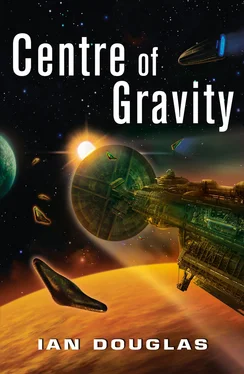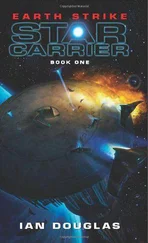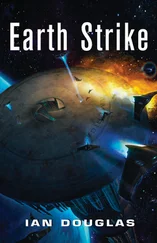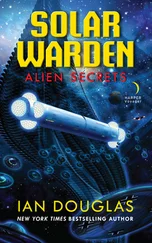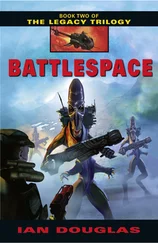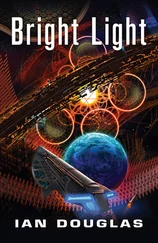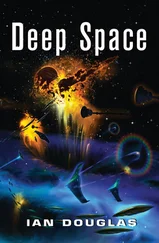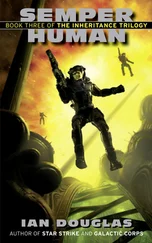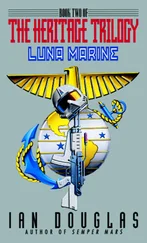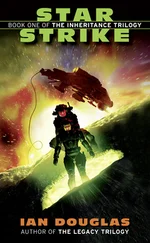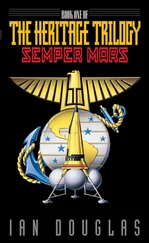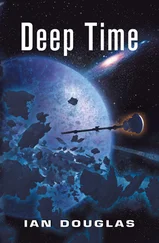1 ...8 9 10 12 13 14 ...22 But then, she had been pinging him. His PA confirmed that it had been her electronic signal seeking him out of the crowd. Maybe she was still interested in him after all.
“I’ve got to go,” he said sharply. He turned and walked away, leaving her standing there by the food table.
High Guard Destroyer Qianfang Fangyu
Saturn Space, Sol System
1325 hours, TFT
“What the holy fuck is that ?”
Jordan Reeves floated in the main control room of the High Guard destroyer, staring into the holographic display showing the long-range scan of the intruder.
Captain Liu Jintao glanced at the liaison officer with distaste, and then passed his hand across the display controls, increasing the magnification factor by another ten.
“I would say,” Liu replied in his slow and halting English, “that it is a problem.”
The target was some 20 million kilometers out from Saturn—and at just about the same distance from Titan at this point in the giant moon’s orbit. That actually placed the intruder well within the outskirts of Saturn’s far-flung system of moons, within the retrograde Norse group, in fact.
And that made the intruder of supreme interest to the High Guard.
Within the display, the intruder appeared as a gleaming point of light, attended by a flickering sidebar of data giving mass and diameter, velocity and heading. The ship—it had just dropped out of the space-twisting bubble of Alcubierre Drive so it had to be a ship—was huge, two kilometers across and massing tens of billions of tons. At optical wavelengths, the object appeared … odd, a flattened sphere with a shifting surface that defied analysis.
“It’s highly reflective,” Liu said.
“It’s black .”
“Because it is reflecting the black of surrounding space. This data suggests that it is almost perfectly reflective … like a mirror, or a pool of liquid mercury.”
“So who are they, and what are they doing in the Norse group?”
The Norse group was the outer cloud of Saturnian moons, some dozens of bodies circling the planet retrograde and at high inclination. Phoebe, at 216 kilometers, was the biggest of these; the rest, named for figures from Norse mythology, were rubble, little more than drifting mountains. Ymir was just 18 kilometers wide.
“Is he trying to rendezvous with any of those rocks?” Reeves asked.
“Not yet,” Liu replied. “The nearest to the intruder’s position is S/2004 S 12 … at just over one hundred thousand kilometers. And the intruder is traveling prograde.”
The Norse group moons were retrograde, circling Saturn east to west. The intruder was currently flying against the flow, as it were, meaning it was not attempting to match course and velocity with any of those hurtling mountains.
Yet .
Over two and a half centuries before, the Second Sino-Western War had been fought both on Earth and in space. Toward the very end of the conflict, a Chinese ship, the Xiang Yang Hong , had used nuclear warheads to nudge three two-kilometer asteroids into trajectories that would have landed them in the Atlantic Ocean, one right after the other; the resultant tidal waves would have devastated both the eastern seaboard of the United States and much of the European Union, as well as much of Africa and South America. Had the attempt succeeded, there was little doubt but that the Chinese Hegemony would have emerged, not merely victorious, but as the single most powerful nation on the planet.
Beijing had claimed that Sun Xueju, the Xiang Yang Hong ’s captain, had gone rogue, that he’d been operating independently of Beijing’s orders when he’d attempted what amounted to a global terror attack. The attempt had come uncomfortably close to success; a U.S.-European task force had destroyed the Xiang Yang Hong and two of the incoming asteroids … but the last, dubbed “Wormwood” by the media, had slammed into the sea between West Africa and Brazil, and half a billion people had died.
The Chinese Hegemony had been shamed by Sun’s act, and had been paying for that event ever since, blocked from joining the Earth Confederation, savaged by trade and commerce laws imposed by foreign governments, regarded as second-class representatives of Humankind …
… not to mention being forced, Liu thought bitterly, to accept foreign political observers on board Hegemony military vessels.
The Earth Confederation had started off three centuries before as little more than a loose trade alliance, but immediately after the Second Chinese War it had become the planet’s de facto government. Under the Confederation’s guidance, the High Guard—originally an automated deep-space system designed to track asteroids that might one day pose a threat to Earth—had been expanded into a small, multinational navy.
The High Guard was similar to the seagoing coast guards of earlier eras, but patrolled the outer solar system in search of asteroids that might threaten a populated world … or renegade ships like the Xiang Yang Hong attempting to change the orbit of an asteroid in order to create a planet killer. The High Guard paid special attention to possible sources of planet killers—the Kuiper Belt, the main asteroid belt, and the tiny, outermost moons of Jupiter and Saturn.
“We should warn SupraQuito,” Reeves said.
“We sent off an alert twelve seconds after the intruder appeared on our displays,” Liu told him. “The time lag at this distance is seventy-six minutes. The question is, what do we do about that … craft?” He pulled down another display, checking the ship’s library. “The only vessel ever encountered even remotely similar to this one was in 2392, at 9 Ceti. The Turusch call them …” He hesitated at the awkward, difficult name. “Heh-rul-kah.”
“An enemy?”
“A single ship wiped out a small Confederation battlefleet.”
“That thing is two kilometers wide,” Reeves said, shaking his head. “Too big for us. I suggest we follow it, perhaps try to get a closer look … but take no action.”
“I fear you are right,” Liu said. He was reluctant to agree with the liaison officer, but the Qianfang Fangyu measured just 512 meters from mushroom prow to plasma drive venturis, and massed 9,300 tons. Unlike many of the Guard’s older, Marshall-class destroyers, she still had a primary ranged weapon—a spinal-mount mass driver—but that would be of little use in combat against something as massive as a H’rulka vessel 20 million kilometers away.
“Captain!” his radar officer called in Guānhuà over his internal link. “The intruder is accelerating rapidly!”
Liu could see that for himself, as numbers on the display sidebar rapidly changed. The massive vessel was rapidly moving out of Saturn space.
It was moving sunward, toward the inner system.
“Helm!” Liu snapped. “Engage gravitics, five hundred gravities. Pursue the intruder!”
It would be like a mouse pursuing an ox. A dangerous ox. Liu wasn’t exactly sure what the Qianfang Fangyu could do if it actually caught the intruder, but they needed to pace it.
And to see to it that Earth was warned as quickly as possible.
But his oath as a High Guard officer—and his determination to see the ancient Middle Kingdom cleansed once and for all of the shame of the Wormwood Strike—made that pursuit imperative, no matter what the outcome.
The Qianfang Fangyu broke free from Titan orbit, accelerating toward a sun made tiny by distance.
Palisades Eudaimonium
New York State, Earth
1925 hours, EST
Admiral Koenig looked at Carruthers with surprise. “They’re doing what ?”
Читать дальше
